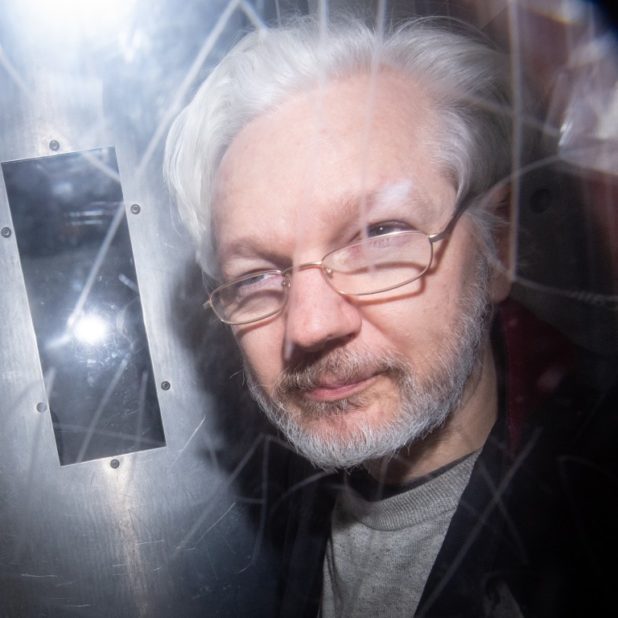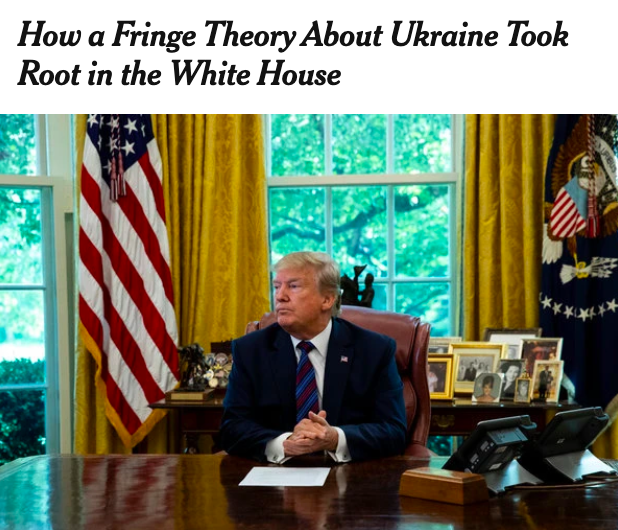Andrew Anglin
Daily Stormer
February 22, 2020
A couple days ago, the lawyers of Julian Assange in the UK claimed that Dana Rohrabacher, a former Congressman from California, came to him and offered a pardon from President Trump if he gave proof that Russia didn’t hack the DNC.
Rohrabacher for some reason decided to talk to none other than Yahoo’s Michael Isikoff about this. Isikoff, you will remember, was in contact with Christopher Steele, author of the #pissgate dossier. Isikoff’s articles were used by the FBI to confirm the validity of the piss file to FISA courts to get warrants used to spy on Donald Trump. The FBI knew that the information was being fed to Isikoff by Steele, and this constituted felony fraud.
No idea why Rohrabacher would do an interview with him of all people, but he probably just didn’t know who he was.
Former California Republican congressman Dana Rohrabacher confirmed in a new interview that during a three-hour meeting at the Ecuadorian Embassy in August 2017, he told Julian Assange he would get President Trump to give him a pardon if he turned over information proving the Russians had not been the source of internal Democratic National Committee emails published by WikiLeaks.
In a phone interview with Yahoo News, Rohrabacher said his goal during the meeting was to find proof for a widely debunked conspiracy theory: that WikiLeaks’ real source for the DNC emails was not Russian intelligence agents, as U.S. officials have since concluded, but former DNC staffer Seth Rich, who was murdered on the streets of Washington in July 2016 in what police believe was a botched robbery.
A lawyer for Assange in London on Wednesday cited the pardon offer from Rohrabacher during a court hearing on the U.S. government’s request to extradite the WikiLeaks founder.
White House press secretary Stephanie Grisham immediately denounced the claim about a pardon discussion with Assange as a “complete fabrication,” adding that the president “barely knows Dana Rohrabacher” and has “never spoken to him on this subject or almost any subject.”
Rohrabacher said that not only did talk of a Trump pardon take place during his meeting, but he also followed up by calling then White House chief of staff John Kelly to discuss the proposal. He did not, however, ever speak to Trump about it, he said.
“I spoke to Julian Assange and told him if he would provide evidence about who gave WikiLeaks the emails I would petition the president to give him a pardon,” Rohrabacher said. “He knew I could get to the president.”
When he spoke to Kelly, the then chief of staff was “courteous” but made no commitment that he would even raise the matter directly with the president. “He knew this had to be handled with care,” Rohrabacher said, and that it could be spun by the news media in ways that would be “harmful” to the president. In fact, Rohrabacher said he never heard anything further from Kelly about the matter, nor did he ever discuss the subject directly with Trump.
Rohrabacher, who was defeated when he ran for reelection in 2018 and is now a consultant to the cannabis industry, long had a reputation as one of the few members of Congress willing to defend Russian President Vladimir Putin.
He also was a strong defender of Trump on the Russia investigation by special counsel Robert Mueller. He said the president personally called him to thank him for one of his TV appearances during which he said that Trump was right to be angry with then Attorney General Jeff Sessions for recusing himself about all matters relating to the investigation.
Rohrabacher also emphasized in the interview that he only wanted “truthful” information from Assange and never suggested that he “lie.” But he said he believed then — and even more so now — that the information he was seeking would prove that WikiLeaks got its DNC emails from Seth Rich, a claim that if true would undercut the findings of U.S. intelligence agencies and Mueller’s prosecutors that Russian agents had hacked the Democratic Party and stolen the emails.
Isikoff wrote a headline like this changed something, but it’s actually the same thing that was in the original news story: he told Assange that he would ensure Trump gave him a pardon if Assange proved Seth Rich – or at least someone other than the Russians – was the source of the DNC emails.
Of course, as I’ve written six bajillion times, there is zero evidence that the Russians hacked the DNC. A private company called Crowdstrike, run by a Putin-hating Russian, is the only one that examined the server. The FBI never saw it. James Comey testified to Congress that he simply took Crowdstrike’s word on it, and decided not to try to arrange for the government to examine the server. And that was the basis for the entire Russian theory.
Crowdstrike said that there were “fingerprints” on the server. No one has any idea what that means. But we do know that the same company said the same thing about missile systems in the Ukraine that they said were hacked by Russians, and it turned out they were lying.
Voice of America, March 24, 2017:
U.S. cybersecurity firm CrowdStrike has revised and retracted statements it used to buttress claims of Russian hacking during last year’s American presidential election campaign. The shift followed a VOA report that the company misrepresented data published by an influential British think tank.
In December, CrowdStrike said it found evidence that Russians hacked into a Ukrainian artillery app, contributing to heavy losses of howitzers in Ukraine’s war with pro-Russian separatists.
VOA reported Tuesday that the International Institute for Strategic Studies (IISS), which publishes an annual reference estimating the strength of world armed forces, disavowed the CrowdStrike report and said it had never been contacted by the company.
Ukraine’s Ministry of Defense also has stated that the combat losses and hacking never happened.
That is the actual series of events. The entire basis for the claim that Russia hacked the DNC is “this company said they did,” and that same company has gotten caught lying about Russian hacking. And they used the claims from the thing they got caught hoaxing in their report on the DNC server.
This is all just hand-waved.
And if you just say “yeah but I mean, the FBI didn’t see the server, and this company was caught lying about Russian hacking…”, Foreign Policy and New York Times will call you a “fringe conspiracy theorist.”
Imagine the nerve of these people, after the Mueller hoax, to call anyone saying anything along the lines of “maybe it wasn’t Russia” a “conspiracy theorist.”
All of this Russian stuff is a hoax.
As soon as someone says “Russia is…” you can pretty well guarantee they’re lying to you.


